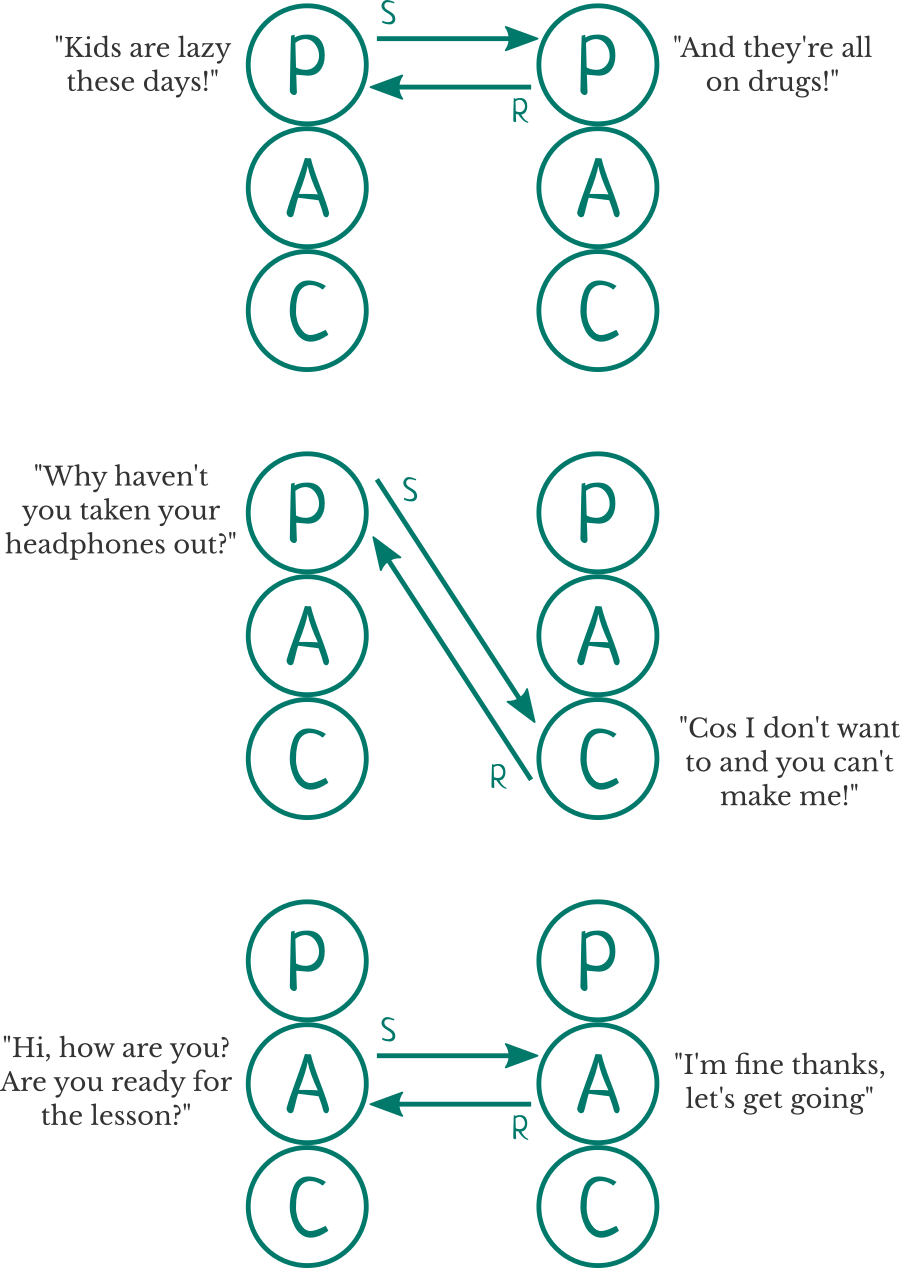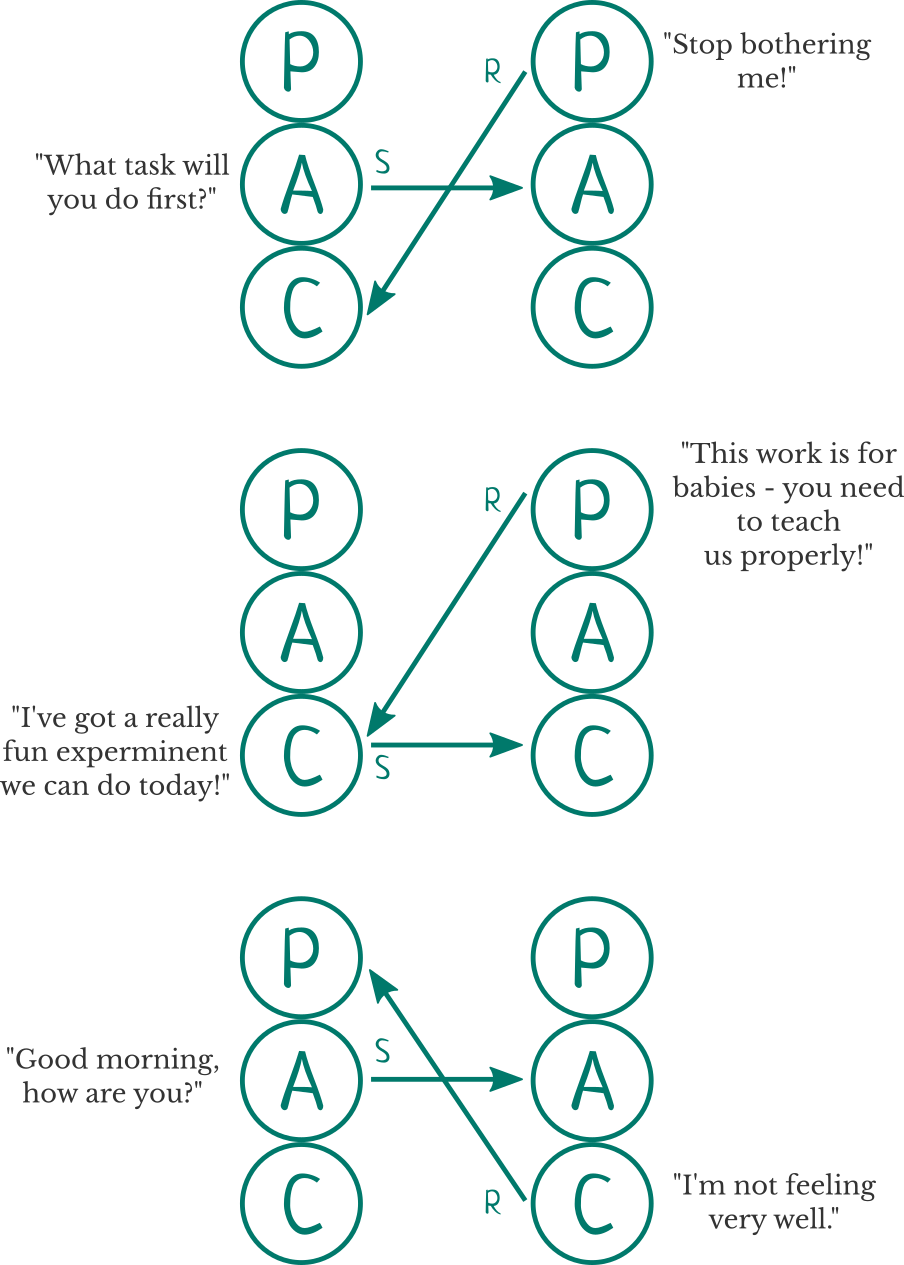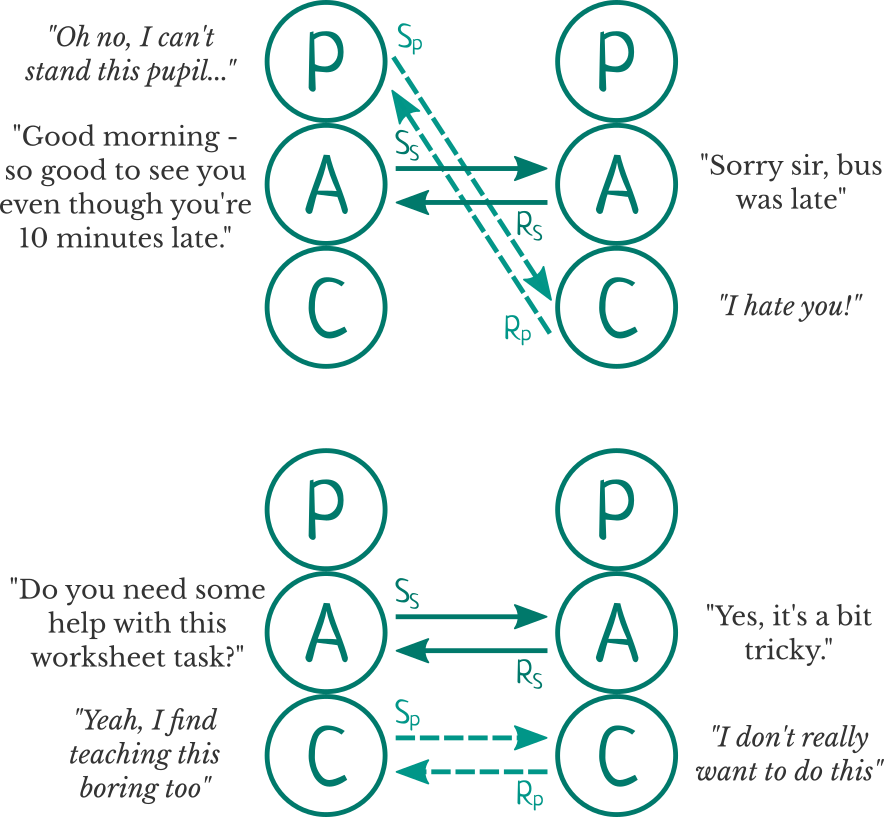Transactions
Berne defined a transaction as a unit of communication which comprises of a stimulus and a response. This simple idea about how we talk with one another became so crucial to Berne’s work that he eventually named his theory by it. The main point of understanding transactions is to identify Berne’s three rules of communication.
Complementary
In a complementary transaction the stimulus and response are anticipated and Berne offered a first rule which is that in this instance the communication will be on-going. In other words, the individuals will continue to function from the anticipated ego states, for example parent and Child. It is like these have a ‘velcro’ effect on the two people and the respective ego states ‘attract’ each other and then continue to bind together. Whilst the term ‘complementary’ suggest this is positive, it is as often unhealthy. For example, where a teacher and student continually relate between Parent and Child ego states.

Crossed
When the response is unexpected, and one of the individuals is functioning from an unanticipated ego state, Berne offered a second rule of communication. He called these ‘crossed’ transactions and argued that this results in a ‘breakdown’ of communication. Although in the common use of this phrase we would see this as a bad thing, in TA terms, this can be constructive. For example, in a series of complementary transactions the social worker and parent/carer may be in a Parent - Child dynamic. By appealing to the Adult ego state one of the individuals ‘crosses’ the expected process and in doing so invites a different kind of exchange.

Ulterior
Sometimes people say one thing at the social level, but mean something quite different at the psychological, or unspoken level. We often know that this is going because there is incongruence, ie. a difference in body language, tone, or gesture from the words said at the time. Berne suggested that when this happens, the psychological message will determine the outcome. For example, when a young person promises that they will definitely do their detention, or come in on time, the adult can sense that they are impatient to leave by non-verbal clues. Whatever is agreed, the adult already knows that the young person won’t do what they have said! This, Berne explained is due to the ulterior message, hence these being referred to as ulterior transactions.

